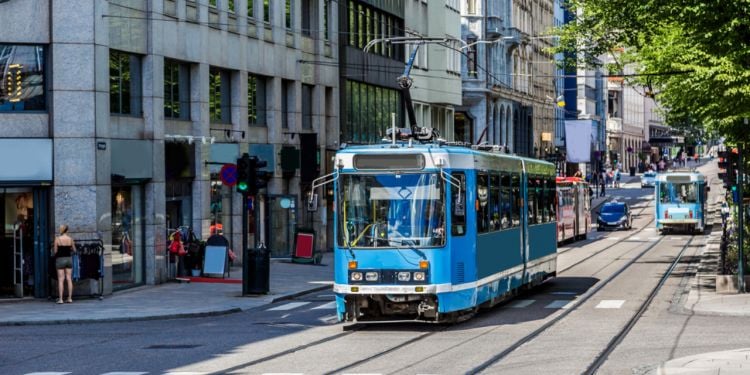
Oslo's extensive trains, buses, trams, ferries, and metro make navigating the Norwegian capital a breeze for expats. They all operate under a unified ticket system managed by Ruter, ensuring great flexibility and seamless travel both within the city and to its outskirts.
Tickets for public transport in Oslo
Ruter's ticketing system is designed for convenience, with tickets valid across all forms of public transport, including the metro, trams, buses, and ferries in central Oslo and Akershus. Tickets can be purchased via the RuterBillett app, at ticket machines, or from convenience stores like 7-Eleven, Deli de Luca, and Mix.
Good to know:
Tickets can be purchased onboard buses and ferries, but only with cash and with 200 NOK notes or less. Onboard purchases incur a surcharge of 20 NOK for adults and 10 NOK for children and seniors.
Ticket control
Frequent ticket inspections occur across the network, especially on buses and the metro, although it is not necessary to show or validate your ticket onboard. Fines for traveling without a valid ticket exceed 1,000 NOK.
Buses in Oslo
Oslo's iconic bright red buses provide reliable and punctual service throughout the city. Green buses, on the other hand, are dedicated to regional routes departing from Oslo Bus Terminal. For longer trips across Norway or to neighboring European cities, services like Nettbuss and Flixbus are excellent options.
Trams in Oslo
Locally known as the trikken, the tram network provides convenient access to key tourist attractions and transport hubs, making it a fast and practical way to navigate Oslo.
Trains in Oslo
Operated by Vy, the train service connects the city center to surrounding suburbs and regions. While ideal for commuters, trains can be crowded during peak hours. For intercity or long-distance travel, specific tickets are required and can be booked via the Vy website.
Ferries in Oslo
Ruter-operated ferries connect Oslo to its surrounding islands, offering a scenic way to explore the city's waterfront. Ruter tickets are valid on most ferry routes, with some seasonal exceptions for specific lines.
Metro in Oslo
The T-bane, Oslo's metro system, features five main lines that provide fast and reliable transportation. Key stops include Majorstuen, Nationaltheatret, and Jernbanetorget, all seamlessly integrated with other modes of transport for ultimate convenience.
Taxis in Oslo
Taxis are widely available but come with high fares. To avoid surprises, consider checking rates online before booking.
Connections to Oslo Gardermoen Airport
Oslo's main airport, Gardermoen, is well-connected to the city center via multiple options:
- Flytoget (express train);
- Vy trains;
- Flybussen and OSL-ekspressen buses.
These services offer quick and convenient travel to and from the airport.
For the latest updates on fares and schedules, visit the official Ruter and Visit Oslo websites.
We do our best to provide accurate and up to date information. However, if you have noticed any inaccuracies in this article, please let us know in the comments section below.








